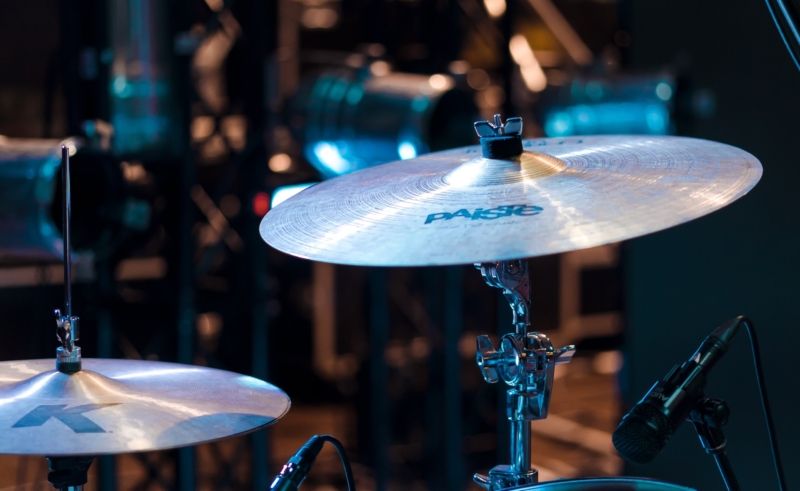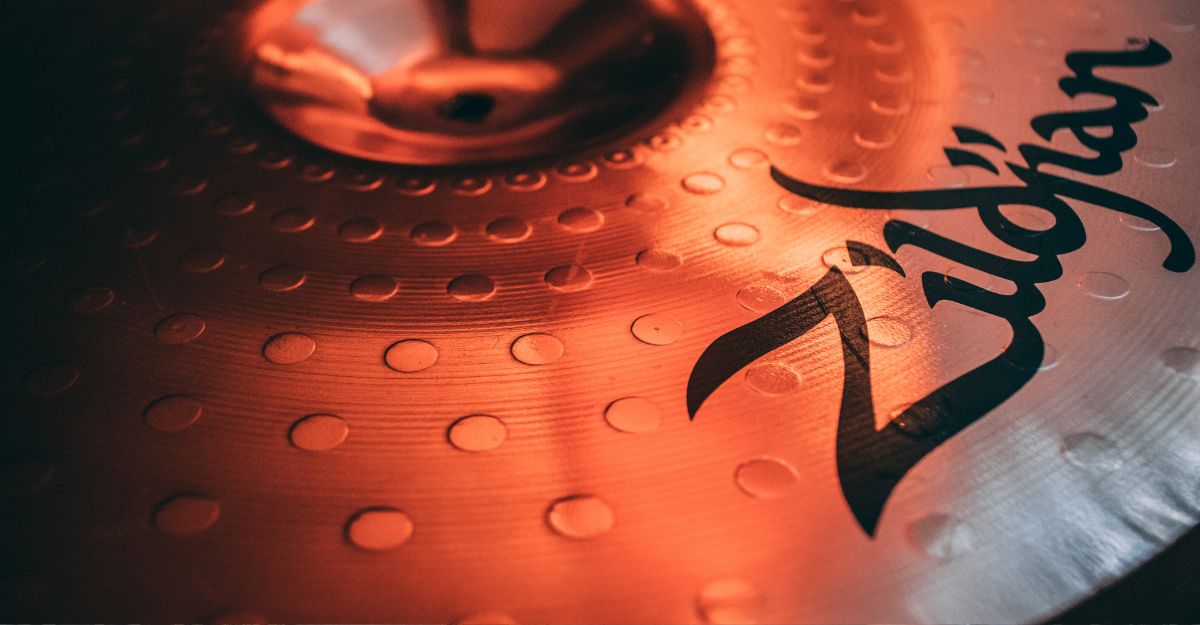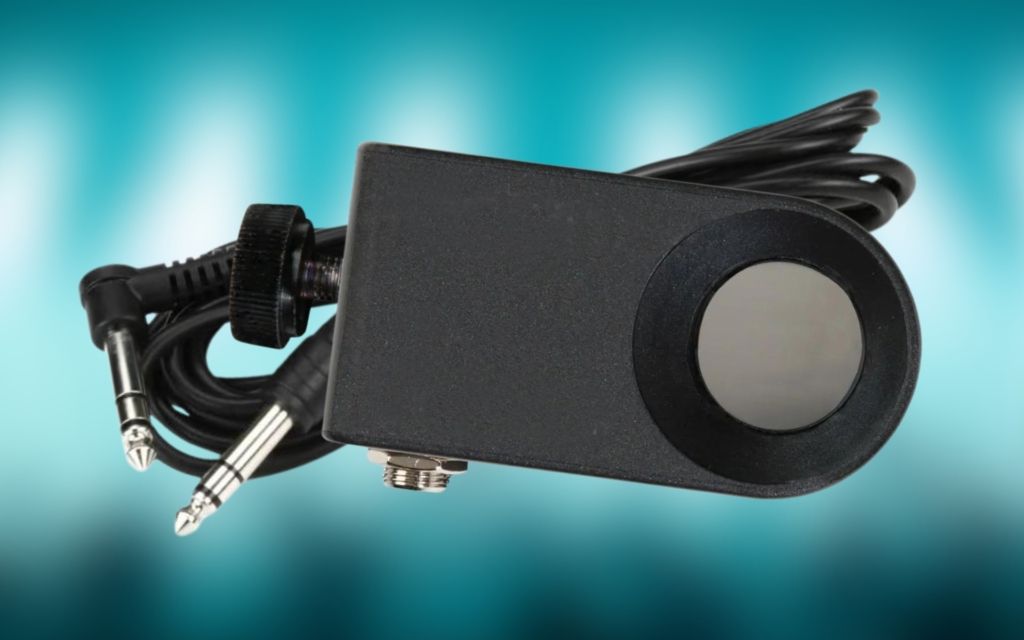Cleaning cymbals is something that should be performed regularly as part of regular drum set maintenance.
Cymbals collect all sorts of dirt, residue, dust and grime that find their way onto the cymbal surface. Keeping cymbals clean will help them to retain their beautiful sounds and looks!
Proper cymbal care is certainly underestimated as an activity that needs to be performed routinely. Not only can cymbals become dull and discolored, but rust and cracking can also occur as a result of neglecting cymbals. For this reason it’s important for all drummers to learn how to clean cymbals.
Fortunately, there is a wide range of specialized cymbal cleaners on the market that will help to restore your dirty cymbals to a gleaming shine and improve the sound and lifespan of your valuable cymbals.
Contents
Two Types of Cymbal Finishes
Cymbals are offered in either a brilliant finish or a traditional finish. Brilliant finish cymbals boast a mirror-reflective shine and will need to be polished to retain their beautiful finish. Traditional finish cymbals do not gleam or shine like their brilliant finish counterparts.
A cymbal polish is best used with brilliant finish cymbals such as Zildjian A custom cymbals. Traditional finish cymbals can still be cleaned, but the results may not turn out quite as good.
Some drummers are averse to cleaning their traditional finish cymbals, and like the natural patina that builds up on the cymbal surface. This is because the oxidization removes high frequencies and creates a darker tone.
Cleaning Cymbals (Basic Cleaning)
Not to be confused with cymbal polishing, basic cymbal cleaning is a way to remove dust and finger prints from your cymbals. It is an activity that can be performed regularly after playing drums.
Simply gently wipe down your cymbals with a non abrasive cloth to remove dust and any moisture on the cymbals. If there is any dirt or residue build up on the cymbals, use some mild detergent and water to clean the affected area. It is essential to dry the cymbal immediately!
Be sure to wipe down the edge of the cymbal carefully with a soft cloth because drumstick chippings can stick to the edge of the cymbal if you are crashing on them particularly hard.
Avoid bending the cymbal or applying too much pressure when wiping a cymbal.
Cleaning Cymbals With Cymbal Cleaner
Using a specifically-designed cymbal cleaning product is the best way to restore your cymbals to a gleaming shine. Cymbal cleaning solutions are affordable and are safe for using with your precious cymbals.
There are lots of quality cymbal cleaner products on the drum market including Groove Juice and all the cymbal companies have their own versions such as the Zildjian cymbal cleaner and the Meinl cymbal care kit.
The majority of these cleaning products from cymbal manufacturers come in a spray bottle for easy application and ease-of-use while keeping your cymbals clean.
Here are the steps you should take while cleaning your cymbals.
1. Gather the Necessary Supplies:
To clean your cymbals with professional cymbal cleaners, you’ll need the following supplies:
- Cymbals
- Gloves
- Microfiber cloths
- A towel
- Cymbal cleaner
2. Prepare the Cleaning Area:
First thing to do when learning how to clean cymbals is to find a large floor space where you can lay your cymbals flat, and place them down on a towel large enough to accommodate the cymbal.
Make sure you have enough space to work comfortably. If you don’t have a towel, you can use some bundles of newspapers to protect the surface you’ll be working on.
Be sure to wear some gloves so that you don’t get the cleaning solution on your hands, and also so that you don’t leave any fingerprints on your cymbals once they are clean.
Don’t leave them down on a hallway or somewhere where somebody can accidentally stand on them. Believe it or not, this does happen.
3. Apply the Cymbal Cleaning Solution
As a general guide, the cleaning formulas all typically work the same and will require applying the formula for a short time before buffing the cymbal clean in circular motions along the grooves of the cymbal lathing.
Use a microfiber cloth to spread the cleaner evenly across the cymbal surface. Gently rub the cleaner in a circular motion while cleaning your cymbals, applying light pressure. Make sure to cover the entire cymbal, including the bell and the edges.
4. Let the Cleaner Sit for 30 seconds
After applying the cymbal polish formula across the whole surface of the cymbal, allow 30 seconds for the formula to work before wiping the cymbal clean with a soft cloth.
Letting the cymbal polish sit on the cymbal surface allows the cymbal cleaner to penetrate and break down any dirt or grime that is on the surface.
FYI – Cymbal cleaner solutions contain chemicals that will eventually remove logos. If you would like to maintain your logos try your best to clean around the cymbal manufacturer logo print.
5. Dry the Cymbal With a Fresh Cloth
Now you have clean cymbals, you’ll want to use a fresh cloth to wipe down the remainder of the cleaning solution from the cymbal and to dry it.
Be sure to dry the cymbals thoroughly with a towel to make sure there is no leftover moisture.
Repeat the process for the underside of the cymbal and take care not to apply extreme force or pressure on any part of the cymbal to prevent it from warping or being damaged.
If you want to know how to clean cymbals that are particularly grimy, you may wish to use a soft-bristled brush such as a toothbrush to get into the grooves and clean any residue off. Do not use a wire brush!
Top Tips for Cymbal Maintenance and Care

Don’t Leave Fingerprints
In order to help prevent cymbal blemishes and fingerprints, try to prevent touching your professional bronze cymbals too often.
When carrying cymbals or taking them off a cymbal stand, use two hands on the edge of the cymbal to avoid leaving fingerprints.
Also, whenever you are cleaning cymbals be sure to wear gloves to avoid leaving blemishes, and help them stay shiny for longer.
Take Cymbals Off First During Teardown
Always take your cymbals off a drum set first whenever you are packing down your drums.
A knocked over cymbal stand will likely break a cymbal, and on a dark stage in a venue you’ll be surprised how easily this can happen.
Dry Cymbals Thoroughly
Whenever you are cleaning cymbals, ensure to dry your cymbals thoroughly! Metal and moisture do not go together well.
Especially with premium bronze alloys that high-quality cymbals are crafted from. This is very important to consider when learning how to clean cymbals.
Never Soak Your Cymbals
Never soak your cymbals in water by submerging them. I have seen some very ill-informed advice online regarding how to clean cymbals. Do not place cymbals underwater!
Store and Transport Cymbals Correctly
When transporting them between shows and rehearsals, it is important to carry your cymbals in a protective, padded cymbal bag or a hard-shell case.
Also it’s best practice to use dividers in cymbal bags to ensure there is no metal-to-metal contact because this can cause scratches and damage your cymbals.
If your cymbals are not being used for prolonged periods of time, keep your cymbals in a protective cymbal case or separately wrapped in towels to minimize air moisture and dust from finding its way onto the cymbal surface.
And avoid exposing your cymbals to extreme cold or heat temperatures!
Ensure No Metal-To-Metal Contact
When mounting your cymbals, ensure you always place the cymbal on a cymbal stand with a nylon cymbal sleeve and felts on either side of the cymbal so there is no metal-to-metal contact.
Playing a cymbal on a stand without a cymbal sleeve in place can cause keyholing and cracks can form on the hole of the cymbal.
Don’t Overtighten Cymbal Wingnuts
Make sure not to over-tighten the cymbal when it’s mounted on a cymbal stand. The cymbal should be allowed to swing freely and therefore allowed to flex.
When a cymbal is over-tightened it is not allowed to flex properly and the cymbal will be rigid and prone to cracking.
Strike Cymbals With Correct Technique
Use proper technique when playing your cymbals! Instead of hitting straight through the cymbal in a downwards motion, swipe across it with a whipping motion. This will put less stress on the edge of the cymbal and allows the cymbal sound to open up more.
Remember that cymbals are very expensive and valuable instruments! If a cymbal is cracked, it loses most of its value, and therefore, cymbals should be treated with care to ensure they last you years of service.









